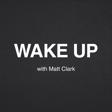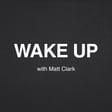
The Power of Focus
Today you’ll learn how to achieve more with less effort using the power of focus.
We’ll discuss three categories of focus, each which builds on the next. We’ll review multiple models that help us decide what to focus on, including a 1,000-year-old concept from Japan.
From how a rock star became a PhD to Oprah Winfrey’s success to a rising value-investor who now manages hundreds of millions of dollars in assets, we’ll uncover powerful tools used by the world’s most successful people to better focus to produce incredible results.
As we’ll soon discuss, we have only around 4,000 weeks to live. We can’t create more time, but we can make the most of the time we do have.
Listen to this episode to learn how.
Timestamps
(00:01:52) Four Thousand Weeks
(00:04:48) Rock star to PhD
(00:05:33) Two paths a great life
(00:10:41) Three categories of focus
(00:13:10) Forced actions into automatic habits
(00:19:43) Ikigai
(00:22:55) Be OK with “chaos”
(00:28:32) Micro Focus
(00:31:47) Rebuilding your attention muscle
(00:32:07) “Success leaves clues”
(00:34:51) Do the most important thing first (“Granny’s Rule”)
(00:36:15) Prioritize prioritizing
(00:37:40) Limit technology usage
(00:41:10) Maker vs. manager
(00:47:39) Present Focus
(00:52:39) Building a 3X Inc 500 company with the power of focus
Links
- Four Thousand Weeks
- Essentialism
- Free to Focus
- First Things First
- Success Principles
- The One Thing
- Focus by Daniel Goleman
- Deep Work
- Slow Productivity
- Your Brain at Work
- The Confident Mind
- The Gap and the Gain
- Maker’s Schedule, Manager’s Schedule
- Freedom app
- Non-electronic headphones
- Silent Pocket phone sleeve
- iMac computer cover


